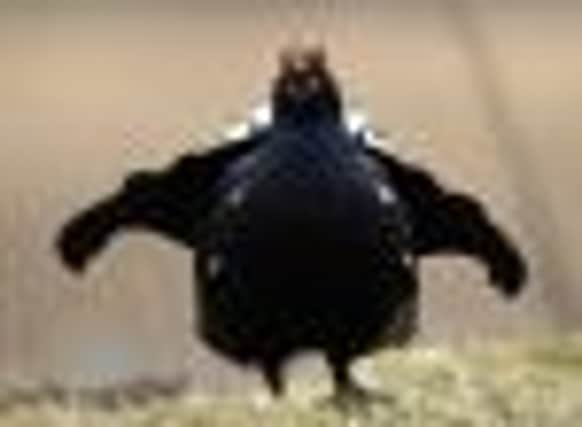Shoot black grouse ‘to protect them’ urges conservationist


Patrick Laurie, a writer and farmer from the south of Scotland, says the voluntary moratorium on shooting black grouse which has been in place for two decades is damaging to the future of the species. He argues that wealthy estate owners plunge money into land management for red grouse - which are thriving - whereas black grouse are not seen as worth cultivating because they cannot be hunted.
Laurie’s study is being published to coincide with the “Glorious 12th” of August, the traditional opening of the grouse shooting season in Scotland. But his comments will inflame the bird protection lobby, which believes the black grouse should be given more official protection.
Advertisement
Hide AdAdvertisement
Hide AdLaurie said: “People are willing to invest a great deal of money into cultivating private land for shooting purposes, and red grouse, which are still hunted, are doing fine as a result. My theory is that could only be good for black grouse to get some of that attention focused on them.
“People’s gut reaction is there aren’t that many black grouse, we need to give them full legal protection from shooting, not shoot more of them. But my perspective is it would be great asset for black grouse if they could be shot.”
Around 200 years ago, the ground-hugging black grouse could be found in most highland areas in the UK. Larger than red grouse, the birds are famous for their “lekking” displays during the breeding season when they noisily compete for females. However, numbers have fallen severely in the last half century and they can now only be found in parts of Scotland, Wales, and four counties in England. A national survey of the species in 2005 found about 3,344 males in Scotland, down 29 per cent from the previous survey conducted 10 years earlier. However, there have been small pockets of recovery in recent years with Dumfries and Galloway recorded 390 lekking (breeding) males in 2011 - up by 160 on the figure for 2010, with similar rises for Deeside, Perthshire and Speyside.
Laurie believes that on some estates, black grouse are present in surplus numbers, allowing limited hunting. “In Scandinavia and Easterm Europe, where black grouse are abundant, large quantities of money are spent each year in shooting them.
“Although shooting a bird on the ground is now unpalatable to British sportsmen, perhaps we should acknowledge a demand from European hunters who want to shoot a trophy blackcock in full plumage. Encouraging foreign sportsmen could be a stepping stone to restoring them to something approaching former numbers.”
Laurie’s views have divided opinion. Colin Shedden, Scottish director of the British Association for Shooting and Conservation, said: “The shooting community should be congratulated for introducing the shooting moratorium, as well as for good management and conservation initiatives for black grouse in Scotland. There is a number of areas now where the opportunity could exist for careful and sustainable shooting to take place.”
But Britain’s leading bird protection charity, the RSPB, dismissed Laurie’s arguments as “simplistic”. A spokesman said: “Black grouse have undergone huge declines in numbers over the past quarter of a century, and the steepest of those declines occurred when the species was still being shot, before the voluntary moratorium. As such, the author’s argument that starting to shoot them again would increase their numbers seems on the face of it somewhat simplistic and specious. The important thing is that, in recent years, black grouse have begun to increase again, showing that conservation efforts to turn around its fortunes are beginning to bear fruit.”
A spokesperson for the Scottish Gamekeepers Association added: “There’s a great deal of respect amongst the gamekeeping community on grouse moors for black grouse and a lot of work gamekeepers do in terms of habitat management that has had a healthy impact on numbers. It would be odd for us to come out and say ‘well, just start shooting them again’. It’s not something on our agenda.”